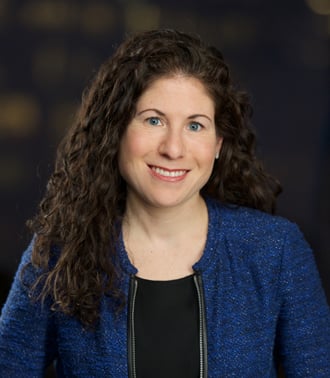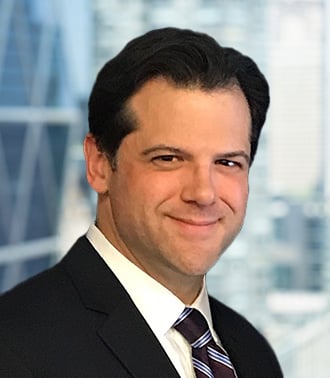DOJ Brings the Hammer, Announces Initiative To Use FCA To Enforce Civil Rights Laws
On May 19, 2025, Deputy Attorney General (DAG) Todd Blanche issued a memo entitled “Civil Rights Fraud Initiative,” announcing the U.S. Department of Justice’s (DOJ) intent to use the False Claims Act (FCA) to enforce the civil rights laws. The memo begins by reiterating DOJ’s commitment to enforcing the civil rights laws and noting that “[o]ne of the most effective ways to accomplish this objective is through vigorous enforcement of the [FCA] against those who defraud the United States by taking its money while knowingly violating civil rights laws.” The memo was issued on the heels of a New York Times report last week that DOJ had initiated an FCA investigation into whether Harvard’s admissions policies comply with the Supreme Court’s 2023 ruling that ended affirmative action.
The memo states DOJ’s view that a federal contractor or federal funds recipient may violate the FCA when it “knowingly violates civil rights laws — including but not limited to Title IV, Title VI, and Title IX, of the Civil Rights Act of 1964 — and falsely certifies compliance with such laws.” For example, the memo explains that “a university that accepts federal funds could violate the [FCA] when it encourages antisemitism, refuses to protect Jewish students, allows men to intrude into women’s bathrooms, or requires women to compete against men in athletic competitions.”
It goes on to state that federal contractors or funds recipients also may violate the FCA by “certify[ing] compliance with civil rights laws while knowingly engaging in racist preferences, mandates, policies, programs, and activities, including through diversity, equity, and inclusion (DEI) programs that assign benefits or burdens on race, ethnicity, or national origin.” And, in other contexts, we have observed the federal government begin to require recipients of federal funds to certify compliance with anti-discrimination laws and executive orders creating FCA risk.
DAG Blanche announced that he is creating a “Civil Rights Fraud Initiative” that will use the FCA to “aggressively” investigate and prosecute these activities. The initiative will be led by DOJ’s Civil Fraud Section and the Civil Rights Division. Notably, all U.S. Attorney’s Offices are required to identify an Assistant United States Attorney to assist with work on the initiative. Members of the initiative will also work with DOJ’s Criminal Division, as well as other agencies and state attorneys general.
The memo also cites the qui tam provisions of the FCA and encourages relators to come forward to file FCA lawsuits, noting that DOJ “strongly encourages these lawsuits.”
Takeaways
This new initiative certainly amps up the risk for colleges and universities that find themselves under the Trump administration’s microscope over their DEI programs, admissions processes, and/or treatment of transgender persons. That said, there are still a number of hurdles DOJ or a relator would have to surpass to hold such institutions liable for an FCA violation. The theory of liability would likely be that, by accepting federal funds, the institutions impliedly certified their compliance with anti-discrimination laws related to racial and gender equality. But to establish falsity under the FCA, DOJ or a relator would then need to prove that an institution’s admissions policies, DEI programs more broadly, and/or dealings with transgender persons in fact did violate applicable civil rights laws. As for knowledge, they would have to prove that the institution, at a minimum, acted with reckless disregard in accepting the federal funds and impliedly certified its compliance with such laws. With respect to materiality, the standard is “demanding,” as we know from Escobar, and would require them to prove that had the government known about the noncompliance, it would not have provided the funding. One way to do this, as Escobar teaches, would be to prove that the institution knew that the government consistently refused to provide federal funding “in the mine run of cases” notwithstanding an institution’s alleged noncompliance with civil rights laws. On the other hand, an institution could point to “very strong evidence” that compliance with anti-discrimination laws related to racial and gender equality is not material if it can show that the government has provided federal funding despite having knowledge of such noncompliance.
For these reasons, the memo raises more questions than it answers. Although the Trump administration has made clear its intent to enforce civil rights laws and ensure equal protection under the law through this new initiative and prior executive orders, it has deeply diverged from the approach of the Biden and prior administrations. Among other things, the scope of what the administration considers “illegal DEI” and/or other violative conduct that could pose risk of enforcement scrutiny is not well-defined and the subject of ongoing litigation in a number of jurisdictions. Whether and to what extent the administration’s interpretation aligns with existing precedent or veers more towards novel enforcement theories will pose challenges for targeted entities, though to the extent those theories are novel, they could provide some FCA defenses as discussed below.
Turning back to the questions – when assessing scienter and materiality, should a court look to the time period before or after January 20, 2025? Escobar only speaks to the “mine run of cases,” which presumably is not temporally limited. And in Schutte, the Supreme Court made clear that knowledge is measured at the time of the allegedly improper conduct, so although fact-dependent, this very likely could be a time prior to the new administration. But even if that is right, will there be a point in time after which courts conclude that DOJ or a relator could argue that institutions knew or should have known that their implied certifications are false? Will there be a point in time after which the Trump administration’s policies, investigations, and enforcements make clear that those allegedly implied false certifications are material?
Finally, are companies and other entities safely out of the cross-hairs of this initiative? We tend to think they are not. Although the DOJ memo clearly targets colleges and universities, there is no bar to DOJ using the FCA to seek to enforce civil rights laws against any other entity that receives federal funds. Indeed, the Trump administration has already issued an executive order focused on DEI and aimed at government contractors.
We at Qui Notes will be watching how DOJ implements this new initiative, how the relator’s bar seeks to use it, and the reception these cases receive from the courts.
© Arnold & Porter Kaye Scholer LLP 2025 All Rights Reserved. This Blog post is intended to be a general summary of the law and does not constitute legal advice. You should consult with counsel to determine applicable legal requirements in a specific fact situation.





